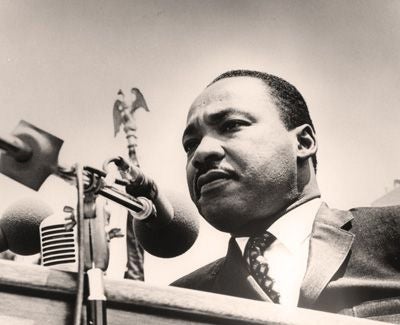When he was an 18-year-old senior at Morehouse College, Dr. Martin Luther King Jr. authored an essay for the school newspaper, The Maroon Tiger, titled “The Purpose of Education.” Arguably the most quoted section of that work reads:
“We must remember that intelligence is not enough. Intelligence plus character — that is the goal of true education. The complete education gives one not only power of concentration, but worthy objectives upon which to concentrate. The broad education will, therefore, transmit to one not only the accumulated knowledge of the race but also the accumulated experience of social living.”
The elegance and maturity of Dr. King’s observation continue to resonate and inspire, manifesting in UCLA’s mission of education, research and service.

Eighteen years after Dr. King wrote that essay, he visited our campus in Westwood to deliver a speech in which he noted that the opportunity to address university students was a “rich and rewarding experience,” a welcome break from “the day-to-day demands of our struggle for freedom and human dignity in the South.”
On that day, April 27, 1965, in what would come to be known as his “Segregation Must Die” speech, Dr. King acknowledged that it was a fact that some progress had been made in the struggle for equal rights. Then, he said:
“A fact is merely the absence of contradiction, but truth is the presence of coherence. Truth is the relatedness of facts — and it’s a fact that we’ve come a long, long way … but it isn’t the whole truth.”
The whole truth, according to Dr. King, is that there was still a long, long way to go.
Listen to Dr. King’s 55-minute UCLA speech, courtesy of the archives of the UCLA Department of Communication.
